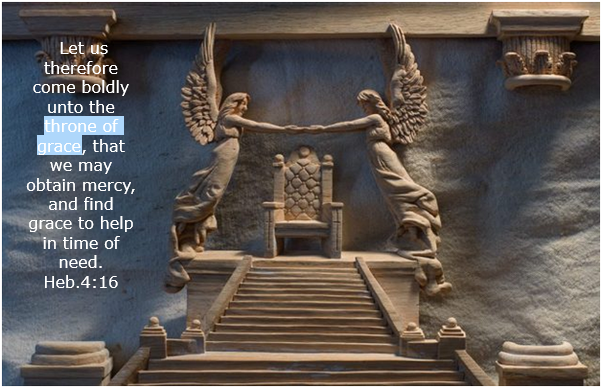By Lacy Evans
Rightly Dividing the Words of Truth:
Three Doctrinal Distinctions the Church Has Forgotten**
The apostle Paul commanded believers to “hold fast the form of sound words” (2 Tim. 1:13). Sound doctrine requires precision, and precision requires distinguishing terms which God Himself distinguishes. Over centuries—especially in the modern church—crucial biblical concepts have been merged, blurred, or sanitized, resulting in confusion about the afterlife, the kingdom, and salvation itself.
This essay restores three key distinctions:
1. Hell (Hades/Sheol) vs. the Lake of Fire
2. Heaven vs. the Kingdom (Kingdom of Heaven/God)
3. The free gift of salvation vs. the prize/inheritance/reward
Each distinction is necessary not only for doctrinal clarity but for spiritual health, exhortation, and obedience.
I. HELL AND THE LAKE OF FIRE: TWO DISTINCT REALMS
Modern preaching often conflates “hell” with “the lake of fire,” yet Scripture could not speak more plainly:
Hell cannot be the lake of fire if Hell is thrown into it.
“Death and Hell were cast into the lake of fire. This is the second death.” (Rev. 20:14)
1. Hell as the Present Underworld
In Scripture “hell” (KJV) translates various contexts of Sheol/Hades, the unseen world of the dead containing multiple chambers. Robert Govett, in Hades, insists on this exact distinction:
“Hades is not the place of final punishment… It is the invisible world that receives departed spirits until the resurrection.” “Within Hades are regions both of joy and of sorrow… Paradise on the one hand, and torment on the other.” (Govett, Hades, pp. 19–23)
Govett also affirms the plurality of compartments:
“There are depths of Hades— ‘the lowest Hades’—as well as Paradise above.” (p. 27)
Scripture likewise presents:
• Paradise (Luke 23:43; Luke 16:22, Abraham’s bosom)
• Torments (Luke 16:23)
• The Pit (Isa. 14:15)
• The Bottomless Pit/Abyss (Rev. 9:1–2; Luke 8:31)
• Tartarus—place of bound angels (2 Pet. 2:4)
• The Grave as a usage of “Sheol” at times
Hell is thus a temporary holding realm, not the eternal state.
2. The Lake of Fire as the Final, Eternal Judgment
The Lake of Fire is a distinct eschatological reality. Govett writes:
“The lake of fire belongs not to the intermediate state, but to the eternal… It is the doom prepared for the devil and his angels.” (Hades, p. 45)
Very little is revealed about it except that it is:
• Final (Rev. 20:10)
• Eternal (Matt. 25:41,46)
• The destiny of the Antichrist and False Prophet before the millennium (Rev. 19:20)
• The final home of all unbelievers after judgment (Rev. 20:15)
The Lake of Fire is not Sheol/Hades—it is the consuming, ultimate judgment after resurrection and judgment.
II. HEAVEN IS NOT THE KINGDOM
Another modern collapse of terms is equating heaven with the kingdom of heaven. Scripture maintains a clean distinction, and the early conservative expositors (Govett, Lang, Pember, Peters) unanimously insisted on it.
1. The Kingdom Is Not Heaven
The “kingdom of heaven” is not “going to heaven.” Govett (public domain):
“The kingdom of heaven is not heaven itself, but the rule of the heavens over the earth, entrusted to the Son of Man.”
(Govett on Matthew, commentary on Matt. 3:2)
G. H. Lang:
Lang frequently emphasized the future, earthly, messianic nature of the kingdom, contrasting it with the intermediate state. In The Revelation of Jesus Christ he writes:
“It is not to heaven that the saints are promised entrance as a reward, but into the kingdom… the millennial reign with Christ.” (paraphrased summary) G. H. Pember (Earth’s Earliest Ages, public domain):
“The Kingdom is the manifested rule of Christ when He returns… It is not identical with the heavenly abode of the blessed dead.”
Watchman Nee (paraphrased):
Nee consistently taught that the kingdom reward belongs to overcomers, not to all the regenerate, and that entering the kingdom is related to faithfulness, not rebirth. (See The Gospel of God; The King and the Kingdom.)
“The Theocratic Kingdom is a real, visible, external kingdom on earth… It is not heaven, nor the third heaven, but earth restored under divine rule.” (Peters, Theocratic Kingdom, Prop. 49)
2. Where do believers go when they die?
The Bible never says believers “go to heaven” in the modern colloquial sense.
Instead:
• OT saints went to Paradise in Hades
• Jesus went there (Luke 23:43; Acts 2:27)
• The righteous dead await resurrection
• The kingdom is inaugurated at Christ’s return, not at death
• After the millennium comes the New Heaven and New Earth, our ultimate home
The modern teaching that “heaven is our eternal home” is foreign to Scripture. Scripture teaches:
• Intermediate state: Paradise/Hades
• Millennial Kingdom: Earth ruled by Christ
• Eternal State: New Earth
Heaven is never the believer’s eternal destiny.
III. SALVATION (FREE GIFT) VS. PRIZE/REWARD/INHERITANCE
Nothing has harmed the church more than confounding the free gift with the prize, the birth with the inheritance, the family relationship with the reward of service.
1. Salvation is the free, unlosable gift
Salvation is a gift (Eph. 2:8–9; John 10:28–29).
It depends entirely on Christ’s finished work.
Peters emphasizes this distinction:
“Election to salvation is one thing; election to the Kingdom is another.” (Theocratic Kingdom, Prop. 62)
Once born into God’s family, one cannot be “unborn.” No degree of sin, failure, or faithlessness can reverse a divine birth.
This is eternal security—true and biblical, but only in the realm of the gift.
2. The Prize is conditional, earned, and losable
Paul does not press toward salvation—he presses toward a prize:
“I press toward the mark for the prize of the high calling of God in Christ Jesus.” (Phil. 3:14)
“Not as though I had already attained… but I follow after.” (Phil. 3:12)
The Bible calls this future reward:
• The Prize (Phil. 3:14)
• The Inheritance (Col. 3:24; Heb. 12:17)
• The Kingdom (2 Tim. 2:11–12; 2 Pet. 1:11)
• The Crown (2 Tim. 4:8; Rev. 3:11)
It can be:
• Missed (1 Cor. 9:27 – “disqualified”)
• Lost (Rev. 3:11 – “let no man take thy crown”)
• Forfeited through unbelief (Heb. 3–4)
• Sold for temporary gratification—like Esau selling his birthright (Heb. 12:16–17)
3. Esau, Reuben, and the Kadesh-Barnea generation
The New Testament uses these as warnings:
• Esau—saved? yes; but forfeited birthright and blessing
• Reuben—lost preeminence (Gen. 49:3–4)
• Israel at Kadesh—redeemed by blood, but forfeited inheritance through unbelief
These illustrate not the loss of salvation but the loss of inheritance.
Lang on Hebrews (public domain summary):
Lang stresses that Hebrews never warns of losing eternal life, but of losing the kingdom-rest reward, which he calls “the inheritance of the firstborn.”
“The inheriting of the Kingdom is conditional and dependent upon faithfulness.”
(Theocratic Kingdom, Prop. 75)
Thus:
• Gift = unconditional, cannot be lost
• Prize = conditional, can be lost
Conflating these two has created confusion in salvation doctrine from both Calvinistic and Arminian directions.
IV. CONCLUSION: AN EXHORTATION TO RIGHTLY DIVIDE TERMS
To “hold fast the form of sound words,” one must treat biblical terms with reverence and accuracy.
These three distinctions matter:
1. Hell is not the Lake of Fire.
One is temporary, the other eternal. One is thrown into the other.
2. Heaven is not the Kingdom.
Believers await resurrection, the return of the King, the millennial reign, and ultimately the New Earth.
3. The Gift is not the Prize.
The free gift gives eternal life.
the prize grants reward, inheritance, and kingdom participation.
Losing these distinctions has blurred doctrine, confused saints, and crippled motivation. But restoring them revives clarity, stability, and holy fear.
May we imitate Paul:
“Study to show thyself approved unto God… rightly dividing the word of truth.” (2 Tim. 2:15)



